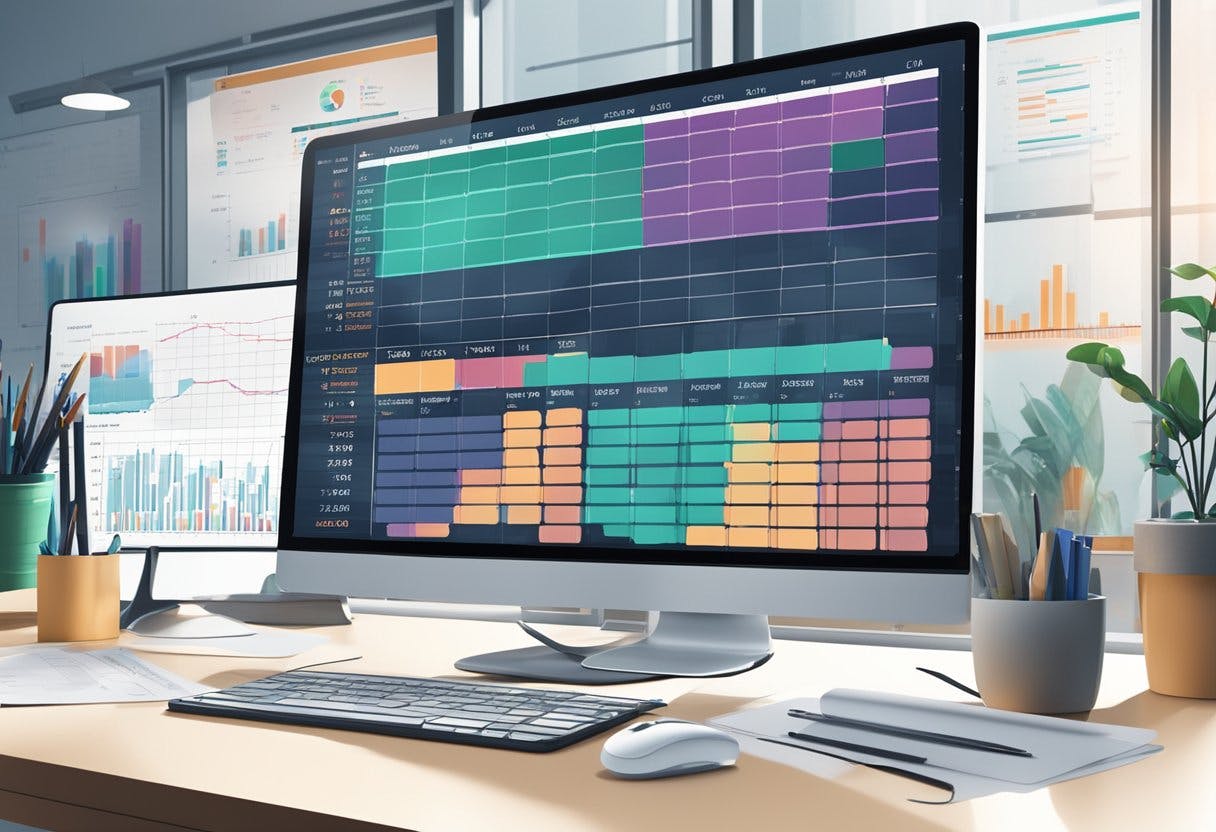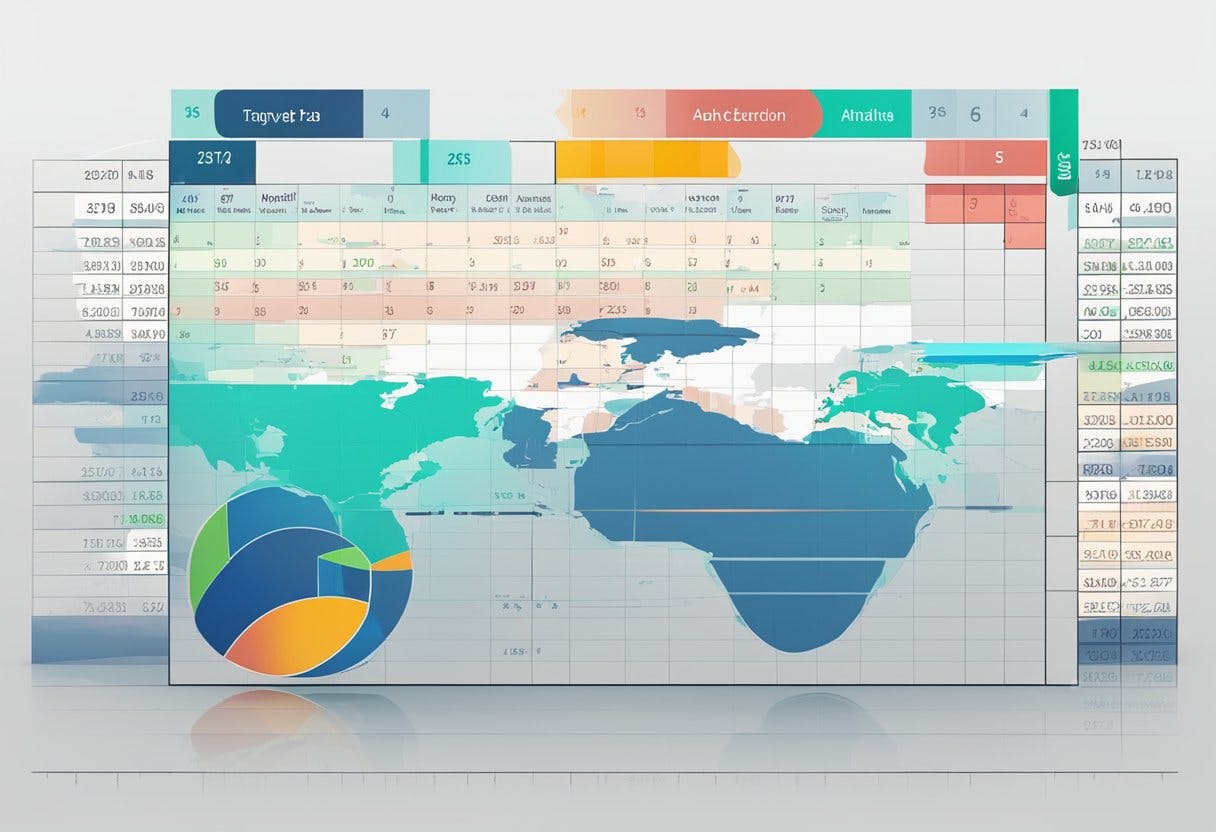
Economic calendars are a crucial tool for forex traders, providing a schedule of upcoming economic events that can impact the forex market. These calendars are designed to help traders plan their trades, anticipate market movements, and identify potential trading opportunities. By staying on top of economic events, traders can make more informed decisions and increase their chances of success in the forex market.

Understanding economic calendars is an essential part of forex trading. These calendars provide a wealth of information that can help traders analyze the market and make informed decisions. They include data on a wide range of economic indicators, such as GDP, inflation, and employment, as well as announcements from central banks and other key players in the global economy. By analyzing this data, traders can gain a better understanding of market trends and make more accurate predictions about future price movements.
The impact of economic events on forex trading cannot be overstated. Economic events can cause significant fluctuations in currency prices, making them a key driver of market movements. By using economic calendars to stay on top of these events, traders can identify potential trading opportunities and make informed decisions about when to buy or sell currencies. Utilizing economic calendars is an essential part of any successful forex trading strategy.
Key Takeaways
- Economic calendars are a crucial tool for forex traders, providing a schedule of upcoming economic events that can impact the forex market.
- By staying on top of economic events, traders can make more informed decisions and increase their chances of success in the forex market.
- Economic events can cause significant fluctuations in currency prices, making them a key driver of market movements.
Understanding Economic Calendars

An economic calendar is a tool that provides traders with information about upcoming economic events that can impact the financial markets and exchange rates. It is an essential tool for forex traders as it helps them to stay informed about economic data releases that may affect their trades.
Components of an Economic Calendar
An economic calendar typically includes a schedule of economic releases, such as GDP reports, employment data, central bank meetings, and other important events that can potentially affect currency prices. The calendar also provides information about the time and date of the release, the country where the data is being released, and the level of importance of the release.
Economic calendars also provide a forecast for the economic data release, which is an estimate of what the data is expected to be. The forecast is usually provided by financial analysts and economists who use various methods to predict the outcome of the data release.
Interpreting Economic Data
When economic data is released, it is important to understand how to interpret the data. Economic data is usually released in three forms: forecast, actual, and previous. The forecast is the estimated value of the economic data release, while the actual is the actual value of the data release. The previous is the value of the economic data release from the previous period.
Traders use economic data releases to make informed trading decisions. If the actual value of the economic data release is better than the forecast, it can be positive for the currency pair. On the other hand, if the actual value is worse than the forecast, it can be negative for the currency pair.
In conclusion, understanding economic calendars is crucial for forex traders as it provides valuable information about upcoming economic events and their potential impact on the financial markets and exchange rates. By using economic calendars, traders can make informed trading decisions based on the economic data releases.
Impact of Economic Events on Forex Trading

Economic events play a crucial role in the forex market. Forex traders need to stay informed about the latest economic events to make informed trading decisions. Economic events can have a significant impact on currency prices, volatility, and market sentiment. Therefore, having access to a comprehensive economic calendar is essential for forex traders.
Interest Rate Decisions
Interest rate decisions are one of the most important economic events that can impact the forex market. Central banks use interest rates to control inflation and stimulate economic growth. When a central bank raises interest rates, it makes the currency more attractive to investors, which can lead to an increase in its value. Conversely, when a central bank lowers interest rates, it can make the currency less attractive, leading to a decrease in its value.
GDP Reports
Gross Domestic Product (GDP) reports are another essential economic event that can impact the forex market. GDP measures the total value of goods and services produced by a country. A strong GDP can indicate a healthy economy, which can lead to an increase in the value of the currency. Conversely, a weak GDP can indicate an economic slowdown, which can lead to a decrease in the currency’s value.
Employment Data
Employment data, such as non-farm payroll reports, can also impact the forex market. Employment data provides information about the health of the labor market and the overall economy. A strong employment report can indicate a healthy economy, which can lead to an increase in the currency’s value. Conversely, a weak employment report can indicate an economic slowdown, which can lead to a decrease in the currency’s value.
In conclusion, economic events have a significant impact on the forex market, and forex traders need to stay informed about the latest economic events to make informed trading decisions. Interest rate decisions, GDP reports, and employment data are just a few examples of the economic events that can impact the forex market. Therefore, having access to a comprehensive economic calendar is essential for forex traders.
Analyzing Market Movements

Economic calendars are essential tools for traders to analyze market movements. They provide up-to-date information on economic events that can affect the currency market. By analyzing this data, traders can make informed decisions and adjust their trading strategies accordingly.
Using Historical Data
One of the most important features of economic calendars is the ability to provide historical data. This data can help traders identify trends and patterns in the market. By analyzing past economic events and their impact on the currency market, traders can make predictions about future market movements.
For example, if historical data shows that a country’s currency tends to appreciate after a positive GDP report, a trader can use this information to predict a similar trend in the future. By analyzing historical data, traders can gain a better understanding of the market and make more informed decisions.
Predicting Currency Trends
Economic calendars can also help traders predict currency trends. By analyzing economic events and their impact on the currency market, traders can identify potential opportunities for profit. For example, if a country’s central bank is expected to raise interest rates, traders can predict that the country’s currency will appreciate in value.
Traders can also use economic calendars to stay informed about upcoming economic events that may affect the currency market. By staying ahead of these events, traders can adjust their trading strategies accordingly and potentially capitalize on market movements.
In conclusion, economic calendars are essential tools for traders to analyze market movements. By using historical data and predicting currency trends, traders can make more informed decisions and potentially increase their profits.
Strategies for Forex Traders
Forex traders use various strategies to make informed trading decisions. These strategies include fundamental and technical analysis, risk management techniques, and trading strategies.
Fundamental vs Technical Analysis
Fundamental analysis involves analyzing economic, financial, and other qualitative and quantitative factors that affect the value of a currency. Forex traders who use fundamental analysis look at economic indicators such as GDP, inflation, interest rates, and employment data to determine the strength or weakness of a currency. They also pay attention to geopolitical events that may affect the currency.
On the other hand, technical analysis involves analyzing charts and using various technical indicators to predict future price movements. Forex traders who use technical analysis look at price patterns, support and resistance levels, and other technical indicators to make trading decisions.
Risk Management Techniques
Forex trading involves a significant amount of risk, and traders need to implement risk management techniques to protect their capital. Risk management techniques include setting stop-loss orders, using proper position sizing, and diversifying their portfolio.
Traders can also use different types of orders such as limit orders and market orders to manage their risk. Limit orders allow traders to set a specific price at which they want to enter or exit a trade, while market orders allow traders to enter or exit a trade at the current market price.
Trading Strategy
Forex traders use different trading strategies to make profitable trades. Some traders use a trend-following strategy, where they try to identify trends and trade in the direction of the trend. Other traders use a range-trading strategy, where they try to identify support and resistance levels and trade within the range.
Traders can also use a breakout strategy, where they try to identify key levels of support and resistance and trade when the price breaks out of these levels. Additionally, traders can use a news trading strategy, where they trade based on economic news releases.
Overall, successful forex traders use a combination of fundamental and technical analysis, risk management techniques, and trading strategies to identify trading opportunities and make profitable trades.
Utilizing Economic Calendars for Profit
Economic calendars are essential tools for Forex traders to predict and prepare for trading opportunities. By keeping track of economic indicators and events, traders can make informed decisions and take advantage of market volatility. In this section, we will discuss how to utilize economic calendars for profit.
Identifying Key Economic Events
Economic calendars provide a comprehensive overview of upcoming economic events, including important announcements, reports, and data releases that can significantly impact currency markets. Traders can use this information to identify key events that are likely to affect the financial markets. By focusing on these events, traders can predict market movements and make trades accordingly.
Planning Trades in Advance
One of the main benefits of using an economic calendar is the ability to plan trades in advance. By knowing the dates and times of important economic releases, traders can prepare for potential market volatility and adjust their trading strategies accordingly. This can help traders minimize risk and maximize profits.
Monitoring Market Volatility
Economic calendars can also help traders monitor market volatility. By keeping track of economic events, traders can identify periods of high volatility and adjust their trading strategies accordingly. This can help traders avoid unexpected losses and take advantage of profitable trading opportunities.
Conclusion
In conclusion, economic calendars are essential tools for Forex traders looking to profit from the financial markets. By identifying key economic events, planning trades in advance, and monitoring market volatility, traders can make informed decisions and take advantage of trading opportunities.
Frequently Asked Questions
How do economic calendar events influence forex market volatility?
Economic calendar events can have a significant impact on the forex market. The release of economic data can create volatility in the market, as traders react to the news. For example, if an economic indicator shows that a country’s economy is growing faster than expected, this can lead to an increase in demand for that country’s currency, which can cause its value to rise. Conversely, if an economic indicator shows that a country’s economy is slowing down, this can lead to a decrease in demand for that country’s currency, which can cause its value to fall.
What are the top economic indicators to monitor for forex trading success?
There are several economic indicators that forex traders should monitor to achieve success. Some of the top indicators include Gross Domestic Product (GDP), inflation rates, interest rates, consumer price index (CPI), and non-farm payroll data. These indicators can provide valuable insights into a country’s economic health and can help traders make informed decisions.
Why are alerts from an economic calendar crucial for forex traders?
Alerts from an economic calendar are crucial for forex traders because they provide real-time information about economic events that can impact the market. By receiving alerts, traders can stay informed about upcoming events and make informed decisions about their trades. Without alerts, traders may miss important events that could impact their trades, which could result in missed opportunities or losses.
Which economic events should traders prioritize when using a forex calendar?
Traders should prioritize economic events that are most likely to impact the forex market. This includes events such as central bank meetings, interest rate decisions, GDP releases, and employment reports. Traders should also pay attention to geopolitical events that could impact the market, such as elections or trade negotiations.
How can traders utilize economic calendars to plan their trading strategies?
Traders can utilize economic calendars to plan their trading strategies by staying informed about upcoming events and using this information to make informed decisions about their trades. For example, if an economic event is expected to have a significant impact on the market, traders may want to adjust their trading strategy accordingly. Economic calendars can also help traders identify potential trading opportunities.
What role does fundamental analysis play in the interpretation of economic calendars for forex trading?
Fundamental analysis plays a crucial role in the interpretation of economic calendars for forex trading. By analyzing economic data and events, traders can gain a better understanding of a country’s economic health and make informed decisions about their trades. Fundamental analysis can also help traders identify potential long-term trends in the market, which can be valuable for developing a successful trading strategy.
Read More




